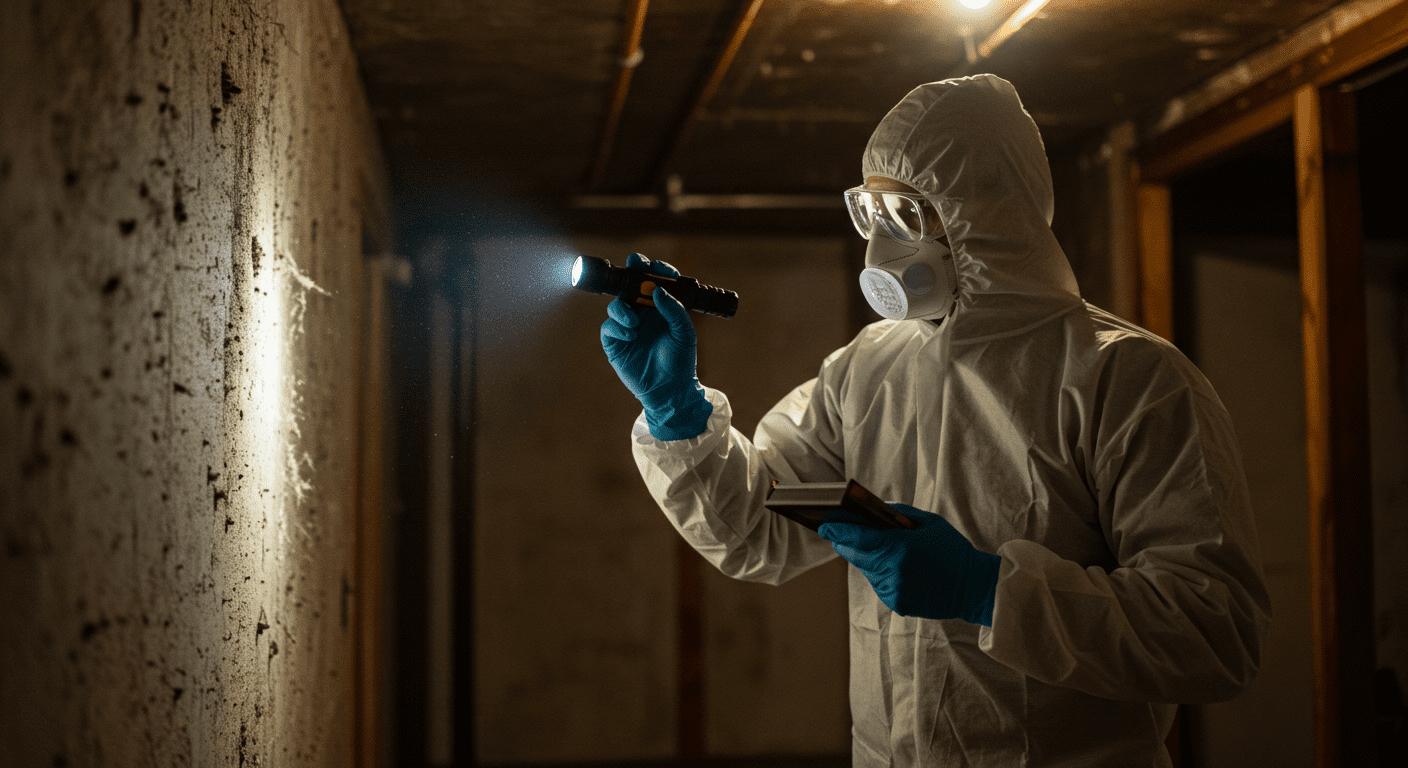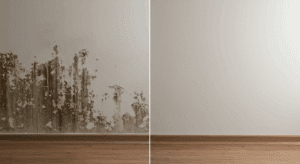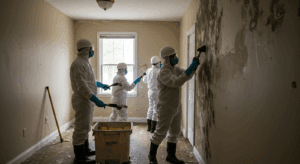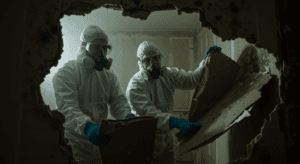Mold is a persistent problem that can wreak havoc on homes and businesses, particularly in humid areas like Atlantic City, NJ. Beyond its unsightly appearance, mold poses serious health risks and can compromise the structural integrity of your property. This comprehensive guide outlines the essential steps for effective mold remediation, helping you safeguard your health and property.
Understanding Mold and Its Health Risks
Overview of Mold Types and Growth Conditions
Mold thrives in damp, humid environments, making Atlantic City a prime location for its growth. Common types of mold include black mold, aspergillus, and penicillium, each with unique characteristics. Mold typically grows on surfaces like wood, drywall, and carpet when moisture levels are high. Leaky pipes, flooding, and poor ventilation are common culprits that create ideal conditions for mold proliferation.
Health Impacts of Mold Exposure
Exposure to mold can lead to a host of health issues, ranging from mild allergic reactions to severe respiratory problems. Symptoms include sneezing, coughing, skin irritation, and even asthma attacks in sensitive individuals. Prolonged exposure to toxic molds, like black mold, can cause more severe health complications, emphasizing the importance of timely mold remediation.
Key Steps for Mold Remediation
Step 1: Initial Inspection and Assessment
The first step in mold remediation is a thorough inspection to identify the extent and source of the mold problem. Professional mold inspection services use advanced tools like moisture meters and thermal imaging to detect hidden mold. Identifying the root cause, such as a leaky roof or plumbing issue, is crucial for effective remediation.
For reliable inspection services, consider Comprehensive Mold and Mildew Testing Services in Sayreville, NJ, which ensure a safe home environment.
Step 2: Containment of Mold Growth
Once the mold is identified, the next step is to contain its spread. Professionals use plastic sheeting, negative air pressure, and HEPA filters to isolate the affected area. This prevents mold spores from contaminating other parts of the property during the remediation process.
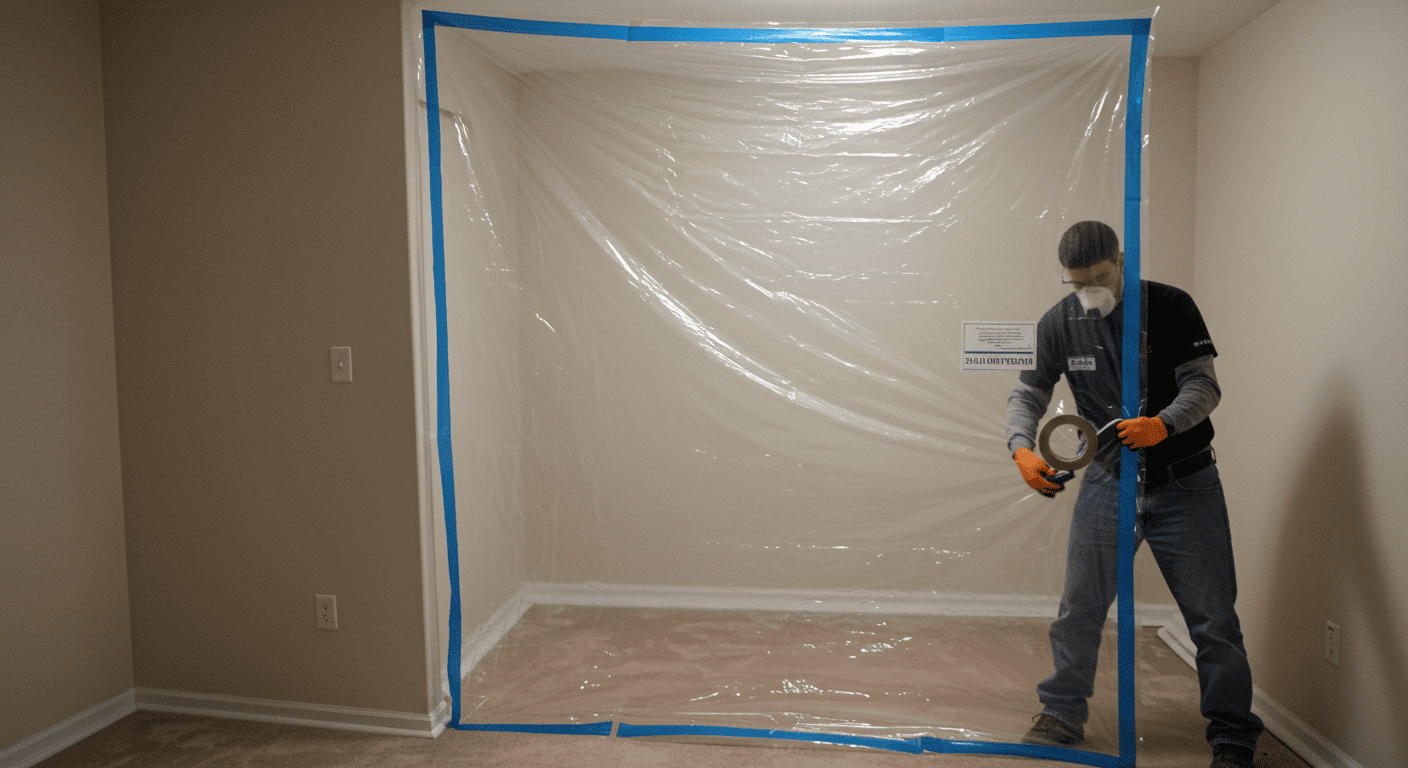
Step 3: Mold Removal Techniques
Mold removal involves physically eliminating mold from surfaces and materials. Depending on the severity, professionals may use specialized tools like HEPA vacuums, antimicrobial treatments, and soda blasting. In some cases, severely contaminated materials like drywall or carpeting may need to be removed and replaced. Safety precautions, including protective gear, are essential during this step to avoid exposure to mold spores.
For additional insights, explore Top Black Mold Specialists Near Me in Passaic, NJ, which offer comprehensive mold removal services.
Preventing Future Mold Growth
Moisture Control Strategies
Preventing mold growth starts with controlling moisture levels. Use dehumidifiers to maintain indoor humidity below 60%, fix leaks promptly, and ensure proper drainage around your property. Ventilation is equally important; exhaust fans in kitchens and bathrooms can help reduce moisture buildup.
Regular Maintenance Practices
Regular maintenance is key to keeping mold at bay. Clean and inspect areas prone to moisture, such as basements and attics, and replace HVAC filters regularly to improve air quality. Proper ventilation and routine inspections can significantly reduce the risk of mold recurrence.
For more tips, check out Expert Mold Containment Services in Union City, NJ, which focus on safeguarding your health and property.
When to Call a Professional Mold Remediation Service
Signs You Need Expert Help
While minor mold issues can sometimes be handled with DIY methods, larger infestations require professional intervention. Signs that you need expert help include persistent musty odors, visible mold covering large areas, and recurring mold despite cleanup efforts. Professionals have the expertise and equipment to address complex mold problems effectively.
Benefits of Hiring Certified Mold Remediation Specialists
Hiring certified mold remediation specialists ensures a thorough and safe cleanup process. Professionals adhere to industry standards, use advanced techniques, and provide long-term solutions to prevent mold from returning. Additionally, they can offer valuable advice on maintaining a mold-free environment.
For top-rated services, consider Top-Rated Mold Removal Companies in Atlantic City, NJ, which provide safe and effective solutions.
Mold remediation is a multi-step process that requires expertise and attention to detail. By understanding the risks of mold, following the outlined steps, and taking preventive measures, you can protect your property and health. If you’re dealing with a severe mold problem, don’t hesitate to seek professional help to ensure a safe and effective resolution.
